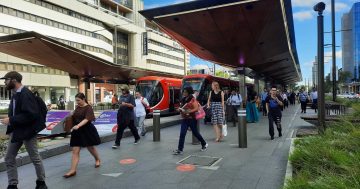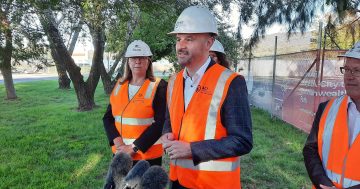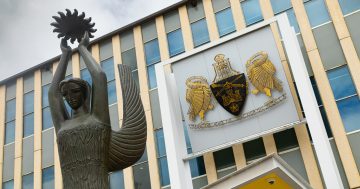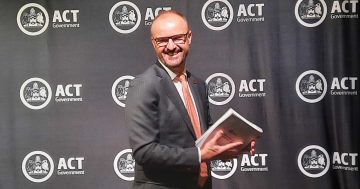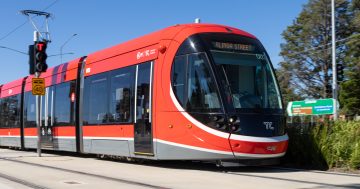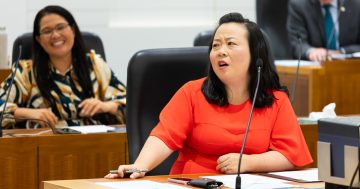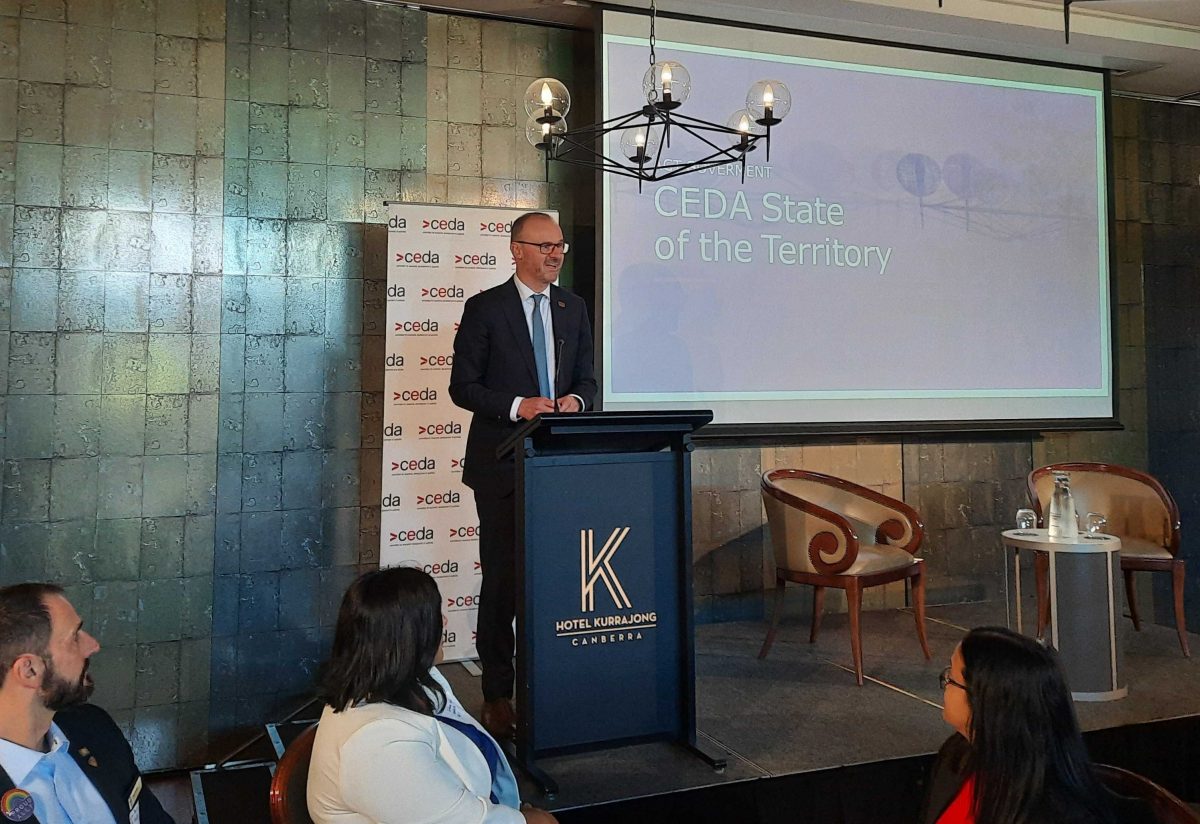
Chief Minister Andrew Barr among friends at the CEDA State of the Territory address. Photo: Ian Bushnell.
Andrew Barr is a rare politician in a unique jurisdiction.
While other state leaders are more geared to contestable electoral cycles and, as a consequence, make decisions attuned to that, Mr Barr is a long-term thinker relatively safe in an electorate that hasn’t returned a Liberal government since 1998.
While it’s true WA, Victoria and Queensland have become Labor strongholds, electoral fortunes can turn quickly.
Not so much in the ACT.
That is a function of the national capital’s demography and a general decline in the Canberra Liberals’ attractiveness over the years, a problem well recognised by some party members still struggling for internal reform.
One could argue that political environment gives Mr Barr the security to embark on long-term projects such as tax reform, the ACT’s superannuation liability and light rail.
But it may be that this self-confessed obsessive list maker could not be true to himself without having big plans that will leave a legacy of what he believes will be sustainable government and infrastructure.
A few years ago there was evidence that he was over politics and looking to move on, possibly frustrated by his perceived poor treatment at the hands of the media and the triteness of the news cycle.
That is long behind him now, especially with the election of the Albanese Government and the opportunities he sees for federal-territory cooperation, particularly in infrastructure.
Mr Barr seems so self-assured (his detractors call it arrogance) these days and held in such high esteem – one only had to observe the admiration for him when he addressed the Committee for Economic Development of Australia (CEDA) last week – that he barely wastes a moment on countering what will be the main theme of the Opposition’s election strategy.
The Canberra Liberal’s risky decision to dump light rail if it wins government, hanging most of the Labor-Greens Government’s sins on its cost, fails to rate a mention unless he is specifically asked.
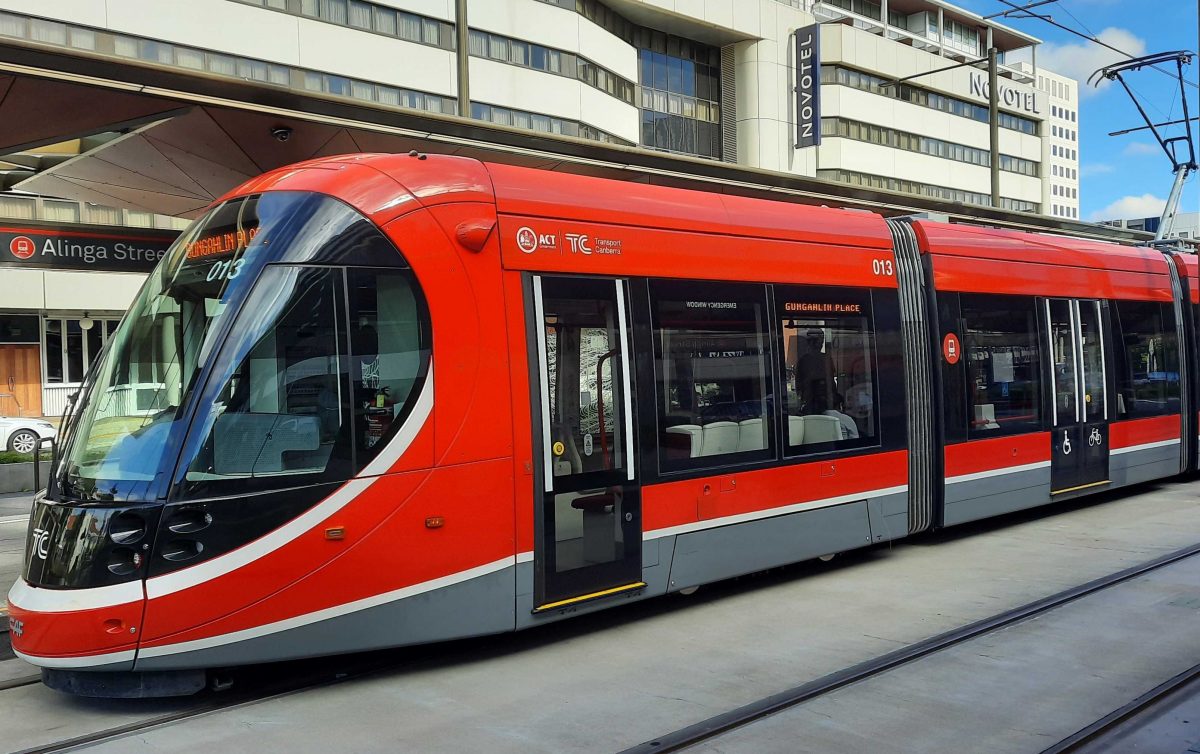
Light rail in the city: More than one way to finance infrastructure, says the Chief Minister. Photo: Region.
Then you will receive a long detailed answer explaining the importance of a public transport system that includes both light rail and electric buses, the range of financing options the government has for infrastructure, including asset sales, borrowing and Commonwealth funding, and the virtues of borrowing for infrastructure that future generations will have use of.
“If we’re building an asset for 50 or 100 years, I don’t expect this generation of taxpayers in this parliamentary term to pay for that upfront in cash,” he says.
He will take you on a journey of fully funding superannuation liabilities and tax reform so that in a decade, the ACT will be set up so it has cash reserves, investment income and a tax revenue stream that means it isn’t so reliant on land and asset sales.
A serious answer for a serious question and the sort of intellectual depth beyond three-word slogans that he expects Canberra voters will be able to accept.
Some will no doubt call it intellectual sleight of hand, but that is a dangerous game to play in a place full of experts like Canberra.
Asked whether he believes the Liberals are economically illiterate then for singling out light rail, Mr Barr refrains from the free kick he is offered.
“I don’t think they have a view beyond the next few years and we are still seemingly dealing with this tired old debt and deficit debate which is really a throwback to the Tony Abbott era,” he says.
“I really would have thought after what Josh Frydenberg and Scott Morrison did in debt and how much they debt they incurred during the pandemic, getting lectures from the Liberal Party on managing debt and deficit is just a little bit rich.”
The 2024 election looks like it will be a contest between a government offering to continue to get things done and press on with a broad reformist agenda and an Opposition distilling all that is wrong with the Territory into the tram and promising a fresh direction.
Mr Barr will be hoping that the election will just be one more thing to cross off so the government can move on to the next things on his list.














